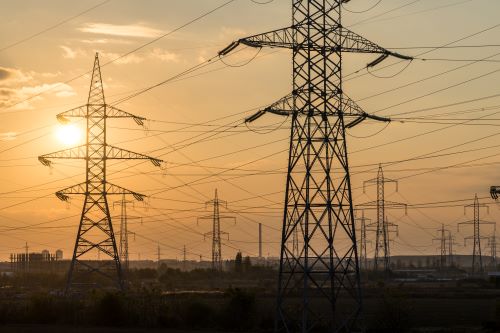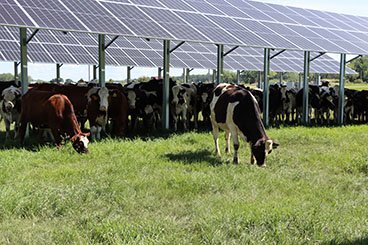Electricity-driven transition to net zero requires collaboration by all levels of government
 Canada needs flexibility in policymaking, streamlined clean electricity project reviews, and a framework to support inter-regional electricity transmission projects to achieve its net-zero emissions target by 2050, says a report by the Canada Electricity Advisory Council.
Canada needs flexibility in policymaking, streamlined clean electricity project reviews, and a framework to support inter-regional electricity transmission projects to achieve its net-zero emissions target by 2050, says a report by the Canada Electricity Advisory Council.
The country also needs to align financial, tax, labour and trade policies with net zero, and expand funding for energy efficiency programs for lower-income Canadians, according to the Council’s final report, “Powering Canada: A Blueprint for Success.”
The federal government should designate an “accountable champion” to accelerate electricity project approvals, the report recommends.
Jonathan Wilkinson, the Minister of Natural Resources, convened the Council in May 2023 to advise on policies to enable the electricity sector to play its pivotal role in Canada’s transition to net zero. The Council is an independent body of 19 electricity sector leaders from every region of Canada.
Most studies have found that to achieve Canada’s net-zero goals in the most cost-efficient way, electricity’s current market share of around 20 per cent will need to grow roughly threefold within a single generation and become the country’s primary form of energy supply, the Council’s report says.
“This growth challenge – not dissimilar to the wave of growth that took place in the last half of the twentieth century – will require strong leadership and collaboration across Canada,” the report says.
Such collaboration is proving difficult to achieve, given that the Alberta government last November invoked its controversial Sovereignty Act for the first time by introducing a resolution to push back against the federal government’s proposed Clean Electricity Regulations.
Alberta Premier Danielle Smith maintains the federal deadline to get Canada’s electricity grid to net-zero emissions by 2035 is impossible for the province to meet without risking power blackouts and high costs for consumers.
The Saskatchewan government also argues that the proposed Clean Electricity Regulations are “unaffordable and technically and logistically unattainable.”
Unlike most of the rest of Canada, both provinces still rely mainly on fossil fueled-based power plants, including natural gas-fired plants in Alberta and coal-fired generation in Saskatchewan. Nova Scotia also still relies on coal-fired power.
The Canada Electricity Advisory Council said it built its recommended policy measures on four cornerstones, which together form the foundation of a successful energy transition:
- Speed: To achieve its goals, Canada needs to rapidly expand its clean electricity infrastructure. That simply will not happen without measures designed to attract capital, involve Indigenous Nations and communities, and, critically, recalibrate project review and approval processes across the country and at every level of government to enable more clean electricity.
- Affordability: If it is to succeed, the transition must be affordable and cost-competitive. Analysis prepared for the Council suggests this is possible, in large part because of the fuel savings that new electricity will create. But the path is narrow, and a wide array of pragmatic, thoughtful measures will be needed to attract the necessary capital, reduce project friction, and help Canadians use electricity more efficiently.
- Reliability: Ensuring the reliability of Canada’s electricity systems is vital during this accelerated transition. Doing so will require greater flexibility in decarbonization policies, especially for those regions that are currently most reliant on fossil-fueled power plants, as well as financial support for investments that enhance system reliability.
- Indigenous Participation: Much of Canada’s new electricity infrastructure will be built on Indigenous lands. By embracing Indigenous Nations and communities as full partners in these projects, Canada has a unique opportunity to begin repairing the unequal relationship that has long dominated energy and resource development, and to harness a powerful force for reconciliation.
Ottawa should “lean into flexibility” in defining rules
The energy and policy landscape in Canada appears robust, but the array of overlapping policies at three levels of government is hindered by insufficient clarity, consistency and alignment, according to the Council’s report.
The federal government should expedite clarification of critical electricity policy rules, and should encourage energy roadmaps – informed by pathway assessments – at the provincial and territorial levels, the report recommends.
In recognition of the diverse needs and contexts across Canada, it says, Ottawa should “lean into flexibility” in defining key rules, including revising clean electricity investment tax credit (ITC) conditions to focus on energy roadmaps.
The federal government also should drive the availability of open and transparent data and modelling, as well as publish key progress indicators to support stakeholders in making evidence-based decisions and enhancing public trust.
“Canada simply cannot keep pace with demand for clean electricity without systemic reform of the tangle of current approval processes,” the report says.
It recommends the federal government move to a risk-based approach to project reviews, streamlining their scoping and adopting a compliance-based framework where possible.
Ottawa also should work with provinces to eliminate duplication in project assessments by adopting equivalency mechanisms wherever possible. The federal government should also designate more Crown lands for expedited clean electricity project development
The federal government should assist developers in understanding Indigenous rights as well as in defining their duty to consult Indigenous Nations and communities, the report says.
It says Ottawa needs to establish a one-stop shop for federal project support, and harmonize electrical codes and standards.
To support the transition to electricity, the report recommends the federal government bring a series of changes to clean electricity-related investment tax credit programming, including adopting more pragmatic conditions criteria, expanding tax credits to intra-provincial transmission, and adjusting credit levels.
The federal Minister of Energy and Natural Resources should engage counterparts at the 2024 Energy and Mines Ministers’ Conference to jointly develop, and table in time for the conference in 2025, a collaborative framework to identify and financially support inter-regional electricity transmission projects, the report says. This framework should outline governance, cost allocation, and funding components.
The report recommends the federal government target funding toward addressing the challenges unique to Indigenous, Northern and remote communities, providing a coordinated approach to economic reconciliation with Indigenous communities and addressing policy certainty and support in Northern and remote communities.
Ottawa also should significantly increase its commitments to fund provincial and territorial energy efficiency programs directed at lower-income households.
The scope and scale of accelerating the build-out of clean electricity can be reduced by significant improvements in energy efficiency and demand flexibility, according to the report.
Ottawa can reinvigorate its efforts and take on a national leadership role by creating an energy efficiency accountability framework and linking federal investments in housing to the highest energy saving standards, the report says.
The government should prioritize support for demand management, by refocusing existing funding toward demand-side solutions such as energy efficiency, demand flexibility and grid modernization.
Ottawa also should make maximum use of its own levers, notably energy efficiency equipment standards, building codes and government operations and procurement rules, the report says.
Canada is starting from “a place of strength”
Canada is already starting from a place of strength, the advisory Council noted. Approximately four in five Canadians live in provinces where electricity is largely decarbonized (more than 90 per cent is non-emitting).
Meeting Canada’s clean electricity goals can alone deliver nearly 40 per cent of the country’s long-term climate commitments while powering a stronger, growth-oriented economy, the Council said.
Analysis prepared for the Council suggests that by 2050, more than seven in 10 Canadian householders can be expected to see net cost-savings as a result of switching to clean electricity, “if the right measures are adopted and well executed.”
“Federal-provincial-territorial collaboration is vital if all parts of Canada are to succeed,” the Council said. “While the federal government can enable and support an effective, affordable, reliable and inclusive transition, most authority over electricity is and shall remain vested with provinces and territories.”
Alberta Premier Danielle Smith and Rebecca Schulz, provincial Minister of Environment and Protected Areas, said the advisory council’s report “echoes Alberta’s long-standing warning: Ottawa’s one-size-fits-all electricity regulations are a dangerous, costly and unrealistic path to failure.”
For over two years, provinces, utilities, businesses and Canadians have demanded federal electricity regulations that reduce emissions without sacrificing affordability and reliability, Smith and Schulz said in a statement. “Yet the federal government has stubbornly stuck to its plans to implement unrealistic targets for a net-zero grid by 2035, regardless of the costs and risks to Albertans.”
“Now the federal government’s own expert advisory body is sounding the alarm,” they said. “The Canada Electricity Advisory Council is calling for less ideology and more common sense, rejecting rigid mandates that ignore regional realities.”
The Council said its report has laid out a “blueprint of actions” that offer a carefully balanced mix of clear policy direction, reductions in the “regulatory muddle” that is slowing the pace of growth, targeted funding to address the most urgent needs and ensure a fair transition for all Canadians, and new rules to dramatically reduce energy waste to make the transition more achievable.
“Electricity is poised to play an outsized role in Canadian society and in its economy, driven by a new wave of rapid growth in supply and demand for clean power,” the Council said. “If the country gets this right, Canada will emerge from the energy transition on solid footing, having reinforced its position in the post-transition global economy.”
R$
Events For Leaders in
Science, Tech, Innovation, and Policy
Discuss and learn from those in the know at our virtual and in-person events.
See Upcoming Events
You have 0 free articles remaining.
Don't miss out - start your free trial today.
Start your FREE trial Already a member? Log in
By using this website, you agree to our use of cookies. We use cookies to provide you with a great experience and to help our website run effectively in accordance with our Privacy Policy and Terms of Service.




.png)
